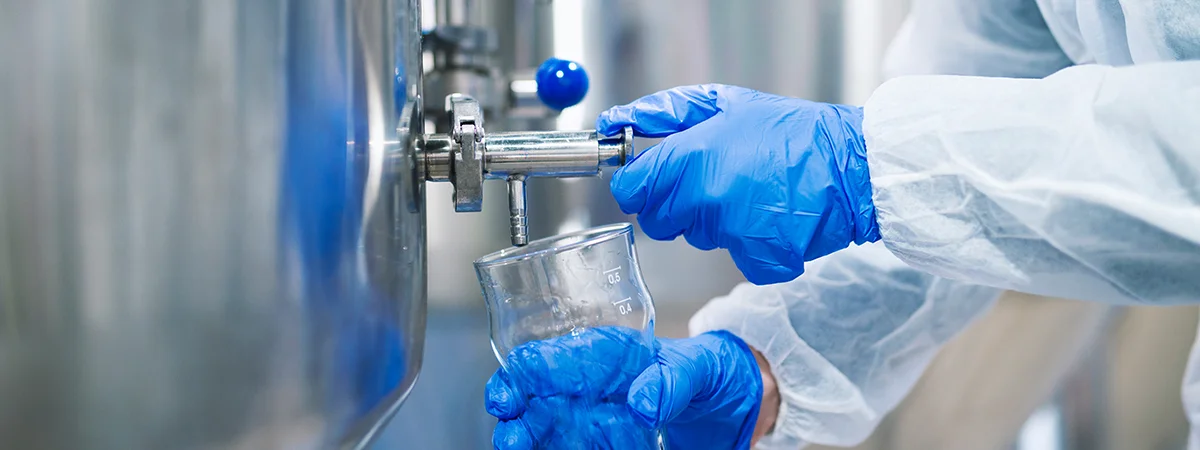A wide and diverse market offer of commercial water filtration system makes choosing the most suitable one for your case quite challenging. Fresh, clean water, used for industrial purposes or customer consumption, is very important in any enterprise. It affects all the areas of operations, from the flavor of the drinks offered to the appropriate functioning of cooking utensils.
Public confidence in tap water can be high, but even treated municipal supplies may contain taste-altering minerals or chlorine. A commercial water filtering machine becomes an essential investment for businesses that rely on crystal-clear, great-tasting water. These water filtering machines eliminate impurities and enhance the water’s quality, ensuring a positive customer experience.
In this blog, you will learn what to look for to ensure you acquire your company’s best commercial water filtration system.
Assessing Water Quality Needs for Efficient Filtration
It is important to consider the water quality you are getting before plunging into detailed systems. Tap water is safe for consumption, but it has been known to contain chemicals such as chlorine, lead, and minerals that give water an undesirable taste and transparency. A water quality test can also be done to establish the different pollutants present in the water source. It will be equally important to ascertain the kind of filtration needed in this process.
Types of Commercial Water Filtration Systems
Classification of Commercial Water Filtration Systems can be made with the help of filtration type and application. Several technologies that are the major working units of commercial water filters exist, each serving a limited function of addressing a certain water problem. Here’s a breakdown of some popular options:
- Reverse Osmosis (RO): RO filters are especially effective when removing dissolved solids, heavy metals and bacteria. They send water with a filter through a selective barrier while expelling contaminated particles. The best thing about the RO system is that the water produced is little infused, making it ideal for use in organizations that require water to prepare foods, such as coffee shops, laboratories, and restaurants.
- Carbon Filtration: Activated carbon removes chlorine, taste, and odors from water passing through carbon filters. They are used primarily in direct connection as a pre-treatment step for RO systems or as basic mechanical working filters.
- Sediment Filtration: Sediment filters, for example, deal with large physical sediments such as sand, dirt, and rust. They are widely used in the pre-filtration mode to avoid blocking the other filters.
- Ultraviolet (UV) Disinfection: The UV disinfection systems utilize ultraviolet light to eliminate bacterial and viral contaminants in the water. These systems form part of other processing techniques to create the ultimate stage of killing off pathogenic microorganisms.
Factors to Consider When Choosing a System
Once you understand your water quality and the types of filtration available, consider these factors when selecting a commercial water filtration system:
- Water Usage: The capacity of the system installed should be proportional to the amount of water you and other family members use in the house. Hence, choosing the system that can match the highest utilisation rates is important in meeting appropriate filtration rates.
- Contaminant Removal: Select a suitable system depending on the type of contaminants found in the sample water quality analysis. Not all systems are created equal; therefore, selecting the most suitable system that addresses these concerns is imperative.
- Maintenance Requirements: Commercial water filters are designed to work for extended periods and, therefore, need maintenance occasionally.
- Complexity: The complexity of the maintenance procedures should also be considered when making the selection since there are more complicated procedures that people should undertake than others. Also, depending on their design, some systems will clean themselves while others will have areas that need filter replacements and other routine processes.
- Budget: Commercial water filtration systems can be expensive, depending on the kind that an individual or company has decided to opt for. The cost depends on the size of the system, the technology used, and the brand. Decide on the budget you will allocate for the filtration system and consider a system that meets your needs in the best way possible.
- Installation and Space Requirements: The more extensive and complicated the system, the more installations are expected. Before setting up the system, ensure you have adequate floor space for the equipment and access points for plumbing. It is preferred to have a professional install it since it should be done by a professional technician.
Additional Considerations
Beyond the core factors, consider these additional points when making your decision:
- Warranty: A warranty is beneficial since it gives confidence to the customer and ensures that there will be backing in case of system breakdown.
- Reputation of the Manufacturer: Select a water filtration system from a reputable manufacturer of quality and efficient systems.
- Customer Reviews: Customers always post about their experiences when dealing with an item, especially how it functions for them, the frequency with which they have to maintain it, and the kind of support they receive from the manufacturer.
Conclusion
Choosing the best commercial water filtration system for your business requires careful consideration of your water quality needs, budget, and operational requirements. By understanding the types of systems available, the factors influencing their selection, and the additional considerations, you can make an informed decision that ensures clean, high-quality water for your business. It was determined that public water supplies undergo treatment; however, they may still contain contaminants. A water quality test is recommended to identify these contaminants. With this knowledge, you can choose the filtration system that best addresses your concerns.
Read Also : – Why You Need a Water Filtration System For Home

